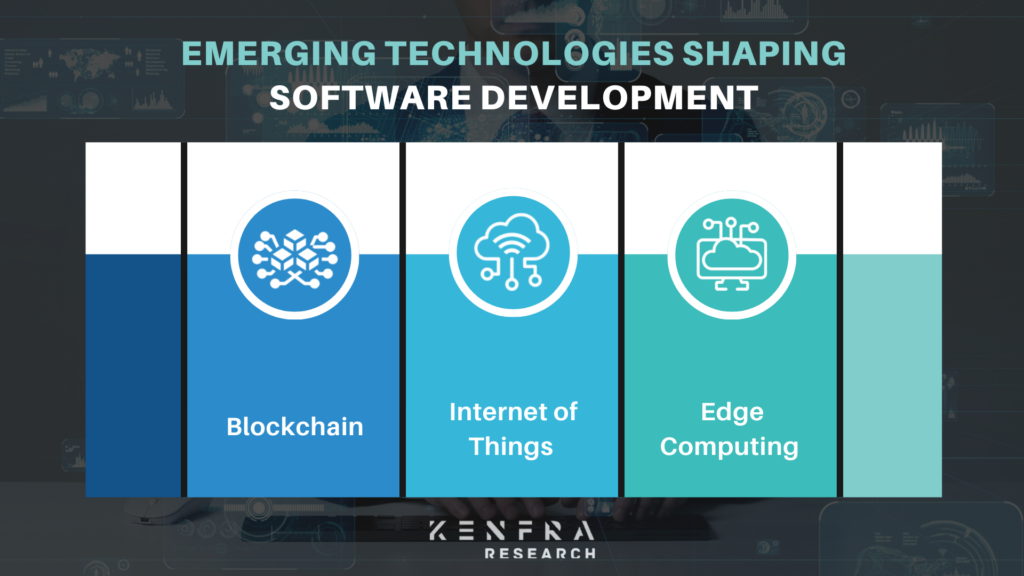05Nov

In today’s digital landscape, the Future of software development is more critical than ever. As businesses and consumers increasingly rely on technology, the demand for innovative software solutions continues to grow. This blog explores the current trends, emerging technologies, and best practices shaping the future of software development.
Software development is the process of designing, creating, testing, and maintaining software applications. From mobile apps to enterprise software solutions, effective software development enables organizations to streamline operations, enhance user experiences, and stay competitive in a rapidly changing market.

Have revolutionized software development by promoting flexibility and collaboration. Agile practices emphasize iterative progress, enabling teams to respond quickly to changes in requirements or market conditions. By breaking projects into smaller, manageable tasks, teams can deliver updates more frequently, enhancing productivity and customer satisfaction.
The integrates development and operations teams to improve collaboration, automation, and efficiency throughout the software lifecycle. By fostering a culture of continuous integration and continuous delivery (CI/CD), organizations can release software faster and with higher quality, ultimately reducing time-to-market.
platforms empower users with little to no programming experience to create applications quickly and easily. This trend allows organizations to leverage citizen developers, enabling them to build solutions that address specific business needs without relying heavily on IT resources.
Are transforming software development by enabling smarter, data-driven applications. Developers can utilize AI tools to automate tasks, analyze user behavior, and enhance decision-making processes, creating more personalized and efficient software experiences.
Has become a fundamental aspect of modern software development. Cloud-based services offer scalability, flexibility, and cost savings, allowing developers to deploy applications quickly and efficiently. Cloud platforms like AWS, Azure, and Google Cloud provide a range of tools and services that streamline the development process.
Breaks down applications into smaller, independent components that can be developed, deployed, and scaled separately. This approach enhances flexibility, making it easier for teams to update specific parts of an application without affecting the entire system.

Technology is gaining traction in software development, especially for applications requiring enhanced security and transparency. By creating decentralized and tamper-proof systems, blockchain can improve trust and accountability in various industries, from finance to supply chain management.
The proliferation devices has created new opportunities for software development. Developers can create applications that connect and communicate with a growing number of devices, enabling innovative solutions in smart homes, healthcare, and industrial automation.
Brings computation and data storage closer to the location of data generation. This trend enhances the performance of applications by reducing latency and bandwidth usage, making it particularly valuable for IoT and real-time applications.

User experience should be at the forefront of software development. Conduct user research, gather feedback, and prioritize usability in the design process to create applications that meet user needs and expectations.
With the rise of cyber threats, integrating security into the software development process is crucial. Adopt security best practices, conduct regular audits, and stay informed about vulnerabilities to protect user data and maintain trust.
Foster a collaborative environment among development teams, stakeholders, and users. Open communication channels ensure that everyone is aligned on goals, timelines, and requirements, leading to more successful outcomes.
The software development landscape is constantly evolving. Encourage developers to pursue ongoing education, attend conferences, and stay updated on industry trends to maintain a competitive edge.
Implementing version control systems like Git is essential for managing code changes and collaboration. These tools enable teams to track modifications, revert to previous versions, and work together more effectively.
The future of software development is bright, filled with opportunities driven by emerging technologies and innovative practices. By staying informed about trends, embracing best practices, and leveraging new tools, organizations can create high-quality software solutions that meet the demands of today’s users. Whether you’re a seasoned developer or a business looking to enhance your software strategy, understanding these dynamics will help you navigate the ever-evolving landscape of software development successfully.
Need support with your software development? Kenfra Research is here to guide you in navigating the future of software development to meet your needs.
Ready to take your project to the next level? Get in touch with Kenfra Research today!
Doctoral Entrance test on Oct 31, registration to begin from Sept 8 A Doctoral Entrance Test is an examination or assessment... read more
How to Write a Winning Technical Proposal, A step by Step Guide / Kenfra Research Crafting a winning technical proposal... read more

Pursuing a PhD is a marathon, not a sprint. Between reading hundreds of papers, managing datasets, writing your thesis,... read more

In any research study or data-driven project, handling missing data in your dataset is a crucial step that can significantly... read more

Research papers are the backbone of academic progress, showcasing your hard work and contributing to the body of knowledge... read more

What are conference papers? Conferences are usually organised by professional societies or organisations and enable academics to present their research findings,... read more
Is PhD mandatory for Assistant Professor from 2023 ? As you begin your search for an assistant professor position, it... read more

PhD research topics in cybersecurity for 2024. Discover emerging trends in AI, blockchain, quantum computing, IoT security, and more.... read more

In 2025, choosing the right web hosting provider is more crucial than ever. Whether you're launching a personal blog,... read more
WhatsApp us
Leave a Reply